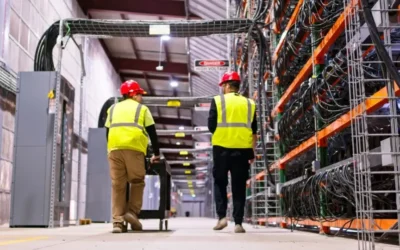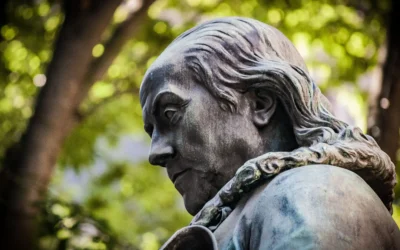Written by
Originally published in Utah News Dispatch.
This week, Utah joined a growing list of states getting requests for confidential voter roll data from the federal Department of Justice. If these states say “no,” the law, federalism, and election security are on their side. That is exactly what they should do.
Back in March, the Trump administration issued an executive order on election integrity. This order sought to standardize some state election laws and security standards, citing federal laws such as the National Voter Registration Act and Help America Vote Act. Among other things, it criticized states for embracing various methods of voting and ballot counting.
Fast forward to today. In recent weeks, states from Maine to California (including my home state of Utah) have gotten letters from the federal Department of Justice requesting private voter information. It has been reported that the DOJ told the National Association of Secretaries of State that it intends to send these letters to all 50 states. These letters cite the Help America Vote Act and suggest that the DOJ is seeking to ensure compliance with this federal law.
The requested information includes descriptions of various state election processes and procedures, as well as a state’s “current statewide voter registration list.” The latter presents a serious problem that jeopardizes legal compliance and election integrity.
Some of the information on voter rolls is public information that is required to be public under federal law. On the other hand, some voter roll information is sensitive, private identifying information.
When it comes to disclosing confidential voter roll information, election officials in Utah and elsewhere should follow the wisdom taught to school children in dealing with people pushing harmful things on them: “Just say no.”
Sound legal analysis puts the law on the side of doing so. The federal Privacy Act of 1974 requires federal departments like the DOJ to provide public notice of any effort to collect data – even publicly available data – to allow public discussion and comment on the desired federal data gathering before it takes place. That hasn’t happened. Additionally, states that share voter roll information with the DOJ without entering into data-sharing agreements required by law may be subject to legal liability.
Just as problematic is how the DOJ request for voter roll information undermines election security by making it easier to commit election fraud.
The foundation of the integrity of American elections lies in our tendency to avoid centralizing authority and information regarding elections – prioritizing federalism over politics. Federal entities create voter equipment standards, states typically maintain voter rolls, local election officials handle and count ballots, and voters themselves ensure their ballot remains secure until it is cast.
In other words, widespread voter fraud in the United States under the current system requires the co-opting of all levels of government or society simultaneously. This is why there is so little concrete evidence of actual voter fraud in America, even with so many elections happening every year. There are anecdotal stories that raise the specter of possible fraud, such as when someone’s friend or relative is sent a ballot that they shouldn’t have gotten, but these stories primarily illustrate how the people themselves are preventing possible fraud.
It is federalism – the disbursed responsibilities and safeguards at every level of government across the nation — not top-down federal attempts like this latest DOJ compliance effort, that ensure election integrity.
How much easier would election fraud become if the DOJ collected all voter data in a central database? Potential fraudsters would breathe a sigh of relief if they only had to hack one federal voter database instead of 50 state voter databases.
Whether based on the law or election security principles, and regardless of which party controls the federal executive branch, states should say “no” to the federal DOJ request for private voter information. They will be protecting election integrity if they do.
More Insights
Read More
A new industrial revolution is underway. Can states seize the moment?
Massive AI data center investments are driving an energy revolution. States must compete, or fall behind like the EU.
Can Utah keep its republic? A new lawsuit raises this question
Utah’s highest court weighs a sweeping initiative challenge, exposing the tension between direct lawmaking and representative government.
Are states moving toward constitutional protections for parents’ rights?
As states move to enshrine parental rights in education, what’s been done, what’s proposed, and where does Utah stands in the movement?
Connect with Sutherland Institute
Join Our Donor Network
Follow Us
The post Utah – and every other state – should protect elections by saying ‘no’ to the Trump DOJ appeared first on Sutherland Institute.














